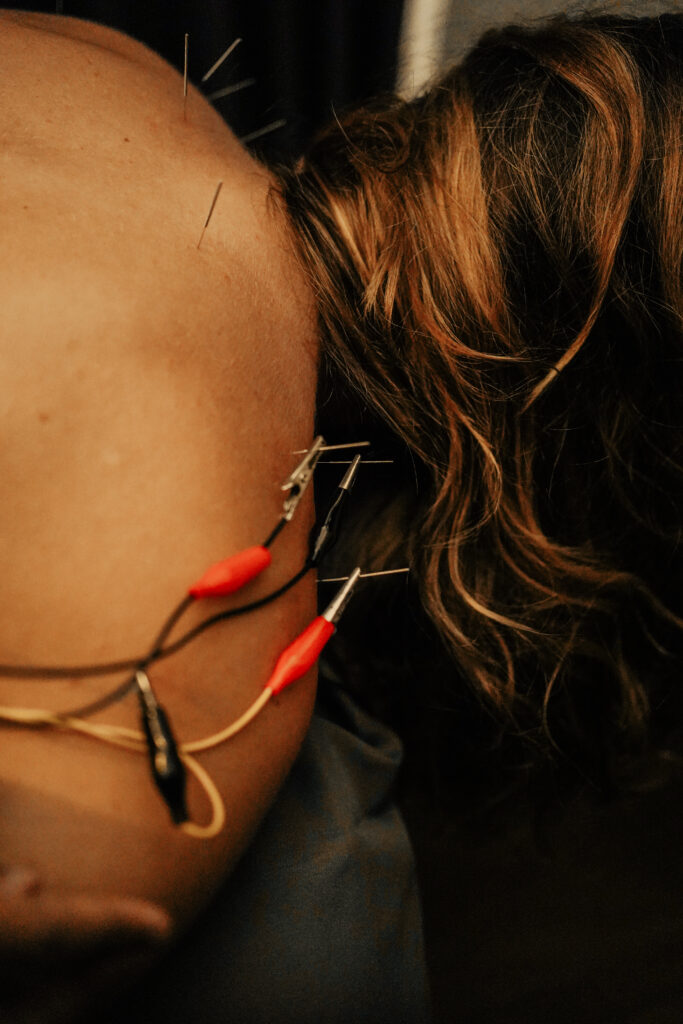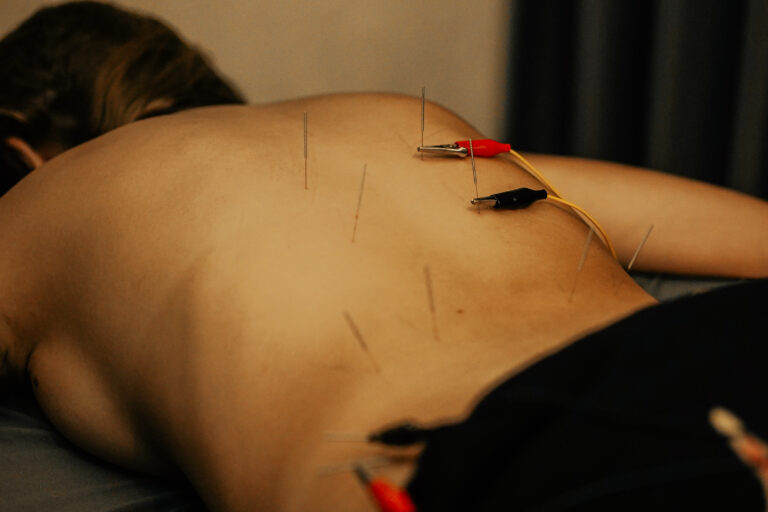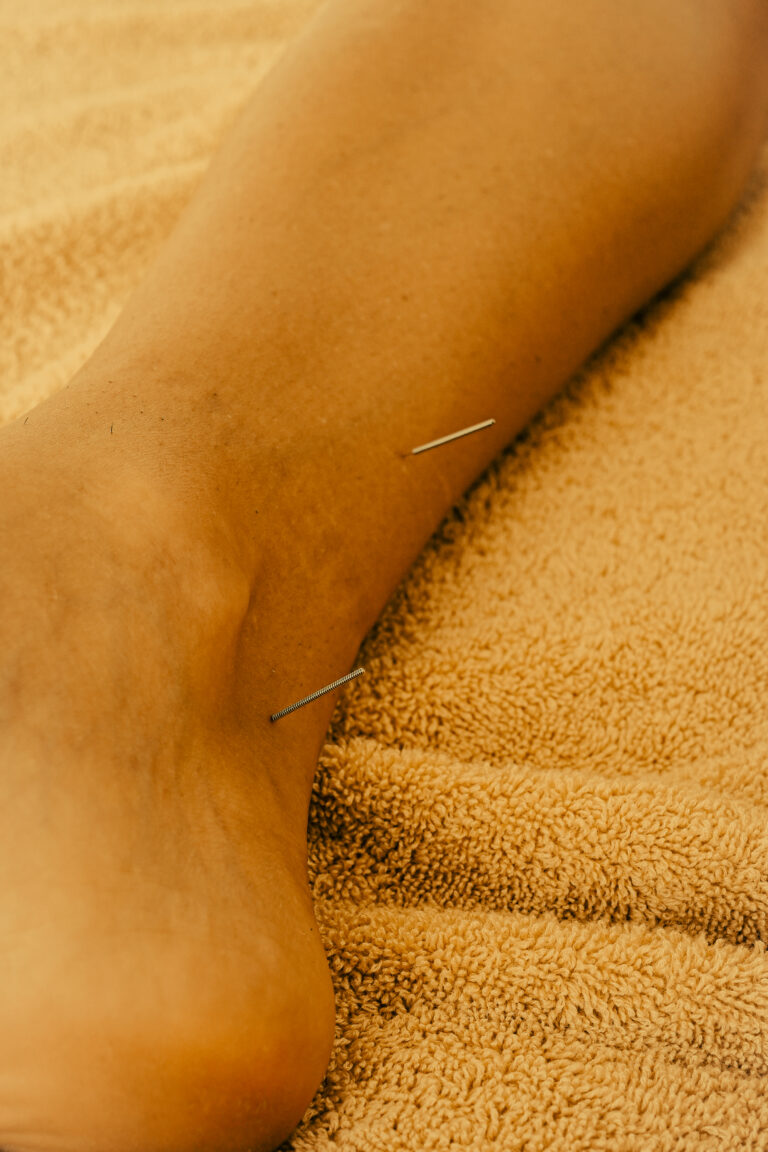Shoulder pain isn’t always just about posture or muscle strain. In Traditional Chinese Medicine (TCM), especially when pain persists or feels connected to emotional tension, one major culprit may be Liver Qi stagnation.
This internal imbalance, often overlooked in modern medicine, reflects how your emotional health, energy flow, and physical body are intimately connected.
In TCM, the body is an interconnected system where Qi (energy) must flow smoothly to maintain health. When Qi becomes stuck—especially Liver Qi—it can cause pain, tightness, and emotional distress.
The Liver in TCM has a primary function: “To ensure the smooth flow of Qi throughout the body.”
When this flow is disrupted due to stress, frustration, overwork, or suppressed emotions, Qi stagnates. This can result in muscle tension, especially in areas traversed by the Liver and related meridians—including the shoulder and neck region.
Key Organ Systems Involved
In TCM, shoulder pain related to Liver Qi stagnation is influenced by several key organ systems and meridians:
- Liver: Responsible for the smooth flow of Qi and Blood throughout the body. Emotional stress, frustration, or repressed anger can lead to Liver Qi stagnation, which in turn causes muscular tension, especially in the shoulders and neck.
- Gallbladder: As the Liver’s paired organ, the Gallbladder meridian runs along the side of the head, neck, and shoulders. Blockage or tension in this meridian often presents as pain or stiffness in the upper trapezius and deltoid area.
- Spleen (indirectly): Prolonged Liver Qi stagnation may affect the Spleen, leading to Qi deficiency and poor nourishment of the muscles, worsening the tension or discomfort.
- Lung: The Lung meridian passes through the anterior shoulder and may also be involved if the stagnation spreads or if emotional grief coexists with anger or frustration.
Common Symptoms of Liver Qi Stagnation-Related Shoulder Pain
- Dull, achy, or tight sensation in the shoulder
- Pain worsens with stress or emotional triggers
- Pain fluctuates in intensity rather than being fixed
- Irritability, sighing, or PMS symptoms may also be present
- Tension in the neck and jaw may accompany shoulder discomfort
TCM Diagnosis: Liver Qi Stagnation Pattern
A TCM practitioner will typically observe the following:
- Tongue: Normal or slightly red sides
- Pulse: Wiry, especially on the left side (Liver pulse position)
- Symptoms: Shoulder stiffness, mood swings, rib-side discomfort, bloating, headaches
Treatment Principles in TCM
The core treatment goals are to:
- Soothe the Liver
- Regulate Qi and relieve stagnation
- Relax tendons and muscles
- Address emotional factors (stress, frustration)
Lifestyle and Diet Tips (TCM-Based)
- Manage stress through breathwork, tai chi, journaling, or nature walks
- Avoid spicy, greasy foods that can overheat and agitate the Liver
- Eat green vegetables like kale, celery, and dandelion to soothe the Liver
- Avoid alcohol and excess caffeine, which can irritate Liver Qi
- Stretch regularly, especially chest and shoulder-opening movements
Daily Acupressure for Liver-Related Shoulder Tension
Press and massage the following points daily for 1–2 minutes:
- LV3 (Taichong) – Between the first and second toe
Moves Liver Qi, calms emotional stress - GB21 (Jianjing) – On top of the shoulder, midway between the spine and the shoulder tip
Releases shoulder tension and helps circulation - LI4 (Hegu) – Between thumb and index finger
Moves Qi and relieves upper body pain
Recommended TCM Treatments
🔸 Acupuncture
Acupuncture points for this pattern often include:
- LV3 (Taichong) – Moves Liver Qi and calms tension
- LI4 (Hegu) – Moves Qi and treats pain
- GB21 (Jianjing) – Local point on the shoulder to release tension
- SJ5 & GB34 – Move Qi along the lateral meridians and relieve musculoskeletal pain
🔸 Cupping Therapy
Applied along the upper back and shoulders to release trapped Qi, reduce muscle knots, and improve circulation.
Conclusion
When shoulder pain lingers and doesn’t respond to stretching or massage, it might be time to look deeper. Liver Qi stagnation offers a compelling explanation—especially when the pain is linked to stress, emotions, or hormonal cycles.
By treating both the mind and the body, Traditional Chinese Medicine helps restore the smooth flow of Qi and bring lasting relief—not just from pain, but from the tension behind it.
Sources
- Maciocia, G. The Practice of Chinese Medicine. Elsevier Health Sciences, 2005.
- Deadman, P. A Manual of Acupuncture. Journal of Chinese Medicine Publications, 2001.
- Kaptchuk, T.J. The Web That Has No Weaver. McGraw-Hill, 2000.
- World Health Organization (WHO). International Standard Terminologies on Traditional Medicine in the Western Pacific Region. 2003.
- Lyttleton, J. Treatment of Infertility with Chinese Medicine. Elsevier, 2013. (Sections on Liver Qi and emotional causes)










